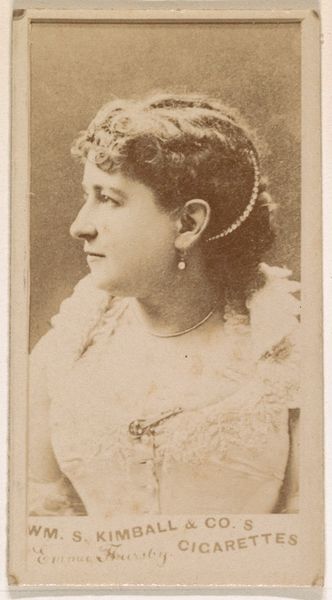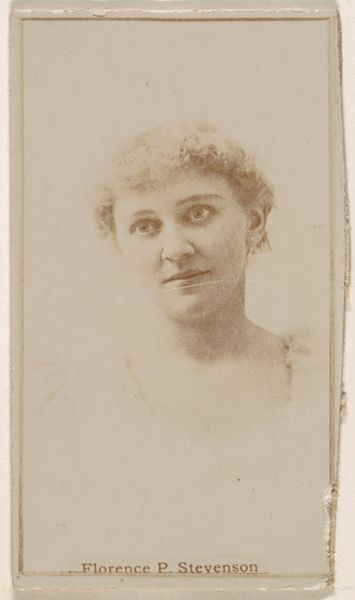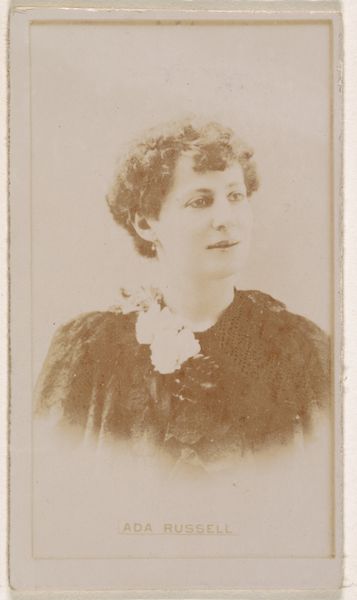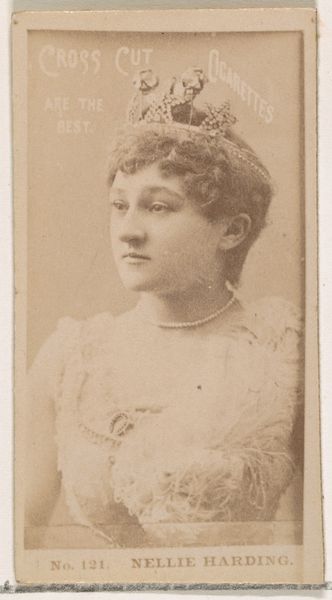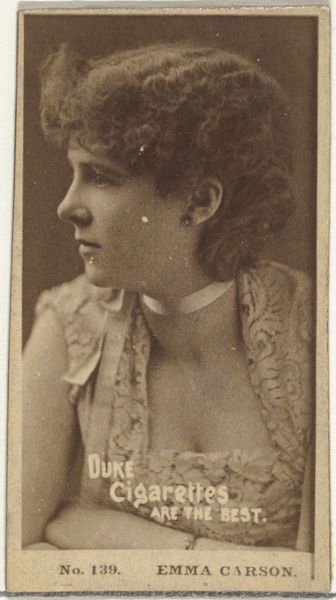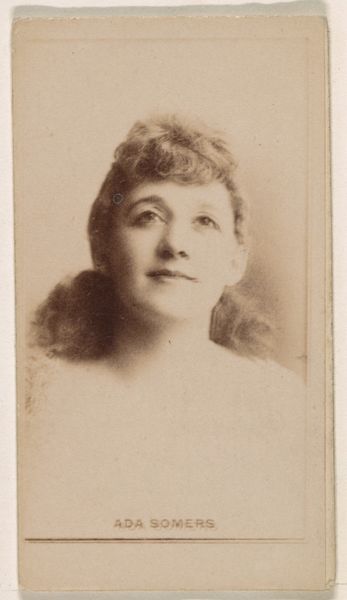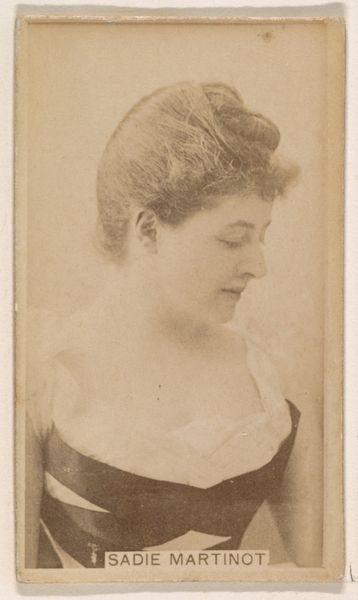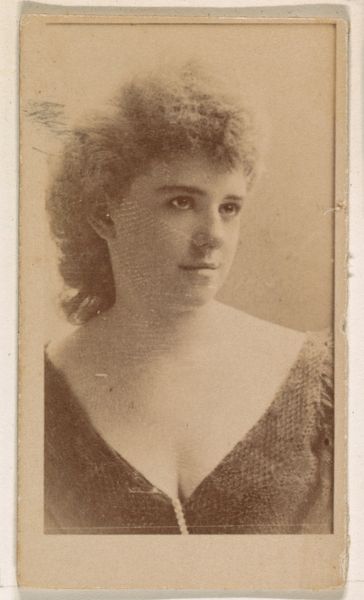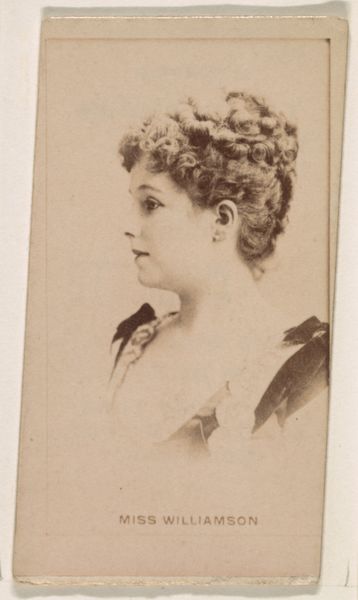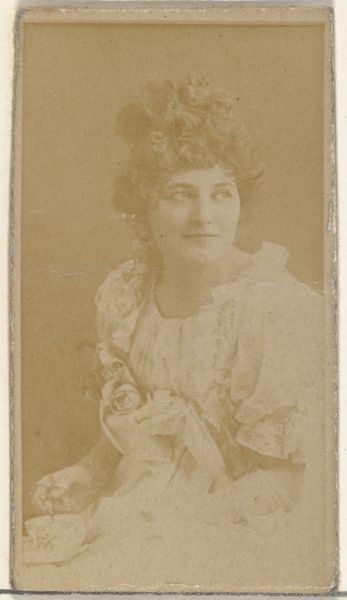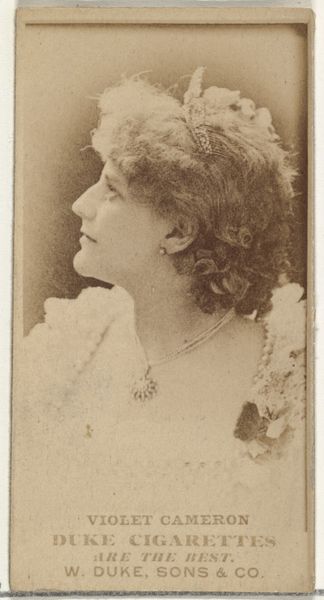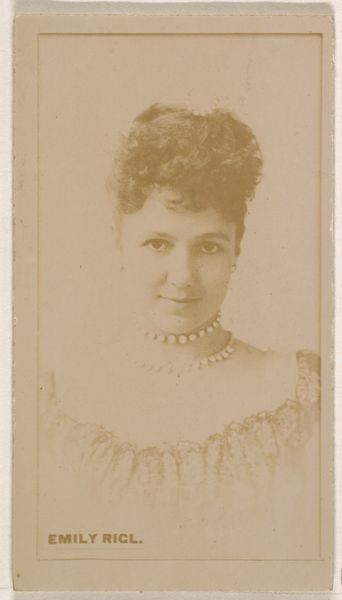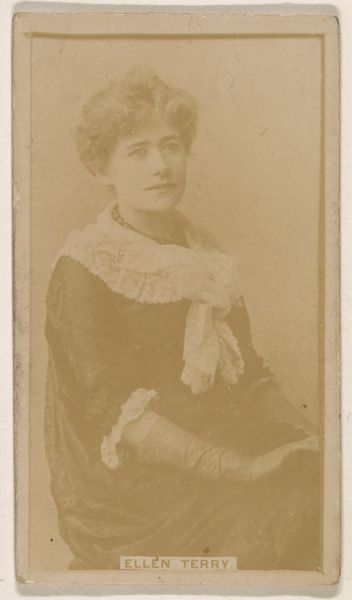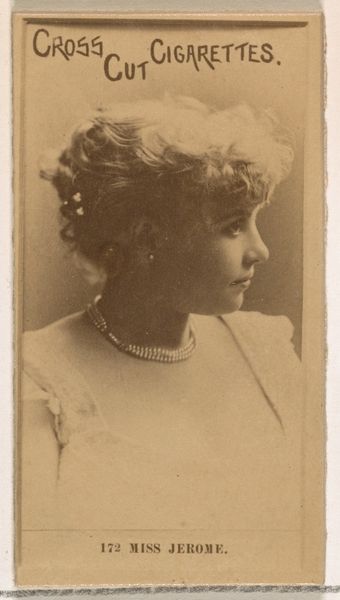
Mrs. Lydia Yeamans Titus, from the Actresses series (N245) issued by Kinney Brothers to promote Sweet Caporal Cigarettes 1890
0:00
0:00
drawing, print, photography, albumen-print
#
portrait
#
drawing
# print
#
photography
#
albumen-print
Dimensions: Sheet: 2 1/2 × 1 7/16 in. (6.4 × 3.7 cm)
Copyright: Public Domain
Curator: This albumen print is part of a series of actress portraits produced around 1890 by Kinney Brothers to promote their Sweet Caporal Cigarettes. The piece is titled "Mrs. Lydia Yeamans Titus" and, while now in the collection of the Metropolitan Museum of Art, it was originally a trading card. Editor: My first thought is how fragile and ephemeral it appears. The soft, sepia tones evoke a sense of delicate history, like a cherished memento tucked away in a worn album. And it was created for a tobacco company? Interesting contradiction! Curator: Exactly! These cards became highly collectible, creating an intersection between popular culture, advertising, and the theater. These portrait cards, while promoting commodified items such as tobacco, functioned as social currency, shaping perceptions of fame. Lydia Yeamans Titus was a star and celebrity. Editor: The printing process, using albumen derived from egg whites to bind the photographic chemicals, speaks volumes about labor-intensive early photography. We often divorce photographic images from discussions of craftsmanship. Each one represents a huge investment of time and materials. It's hard to imagine so much care invested in marketing. Curator: That’s a crucial point. The use of celebrity images also highlights the changing landscape of fame and its ties to commercial endorsements. Lydia Titus was known for performing in drag and blackface, now extremely offensive and problematic but also representative of the entertainment culture of the late 19th century. Editor: That brings a complexity to the piece. This innocent portrait served to promote harmful stereotypes and power dynamics. And thinking about those tiny cards changing hands, being traded… Curator: It emphasizes how deeply these performances were embedded in society. The seemingly innocuous act of collecting these cards becomes a participation in the popularization, or normalization, of racial caricature. It shows the public role of images. Editor: Absolutely. Analyzing the materiality and social context of this photograph exposes the underlying issues of labor, celebrity, and troubling representations woven into its creation and distribution. It invites critical examination of material culture and popular beliefs. Curator: By exploring it, we can reflect on the complicated legacies of image-making and their profound influence.
Comments
No comments
Be the first to comment and join the conversation on the ultimate creative platform.
